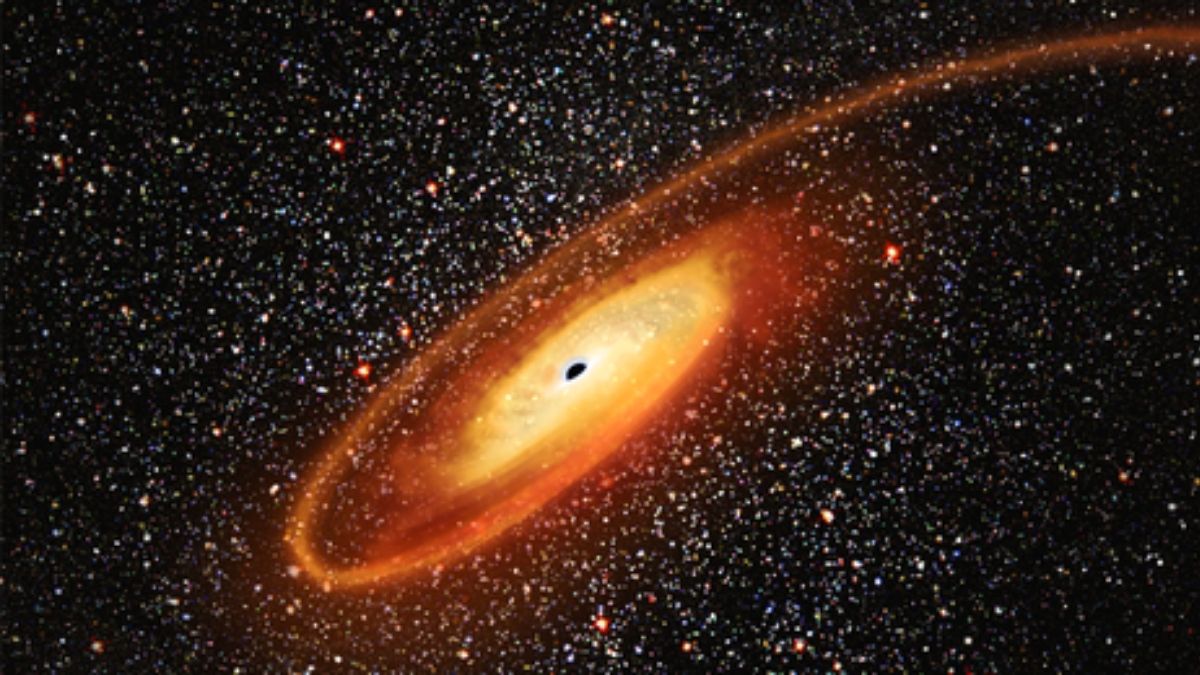Hubble finds a mid-sized black hole lurking in the dark

New data acquired by the NASA/ESA Hubble Space Telescope provides evidence for mid-sized black holes in the Universe. Hubble has confirmed that this “intermediate-mass” black hole dwells inside a dense star cluster.
This kind of intermediate-mass black holes has been sought after for a very long time especially since it partakes in black hole evolution. This new black hole is over 50,000 times the mass of our Sun.
Intermediate-mass black holes are very elusive objects, and so it is critical to carefully consider and rule out alternative explanations for each candidate. That is what Hubble has allowed us to do for our candidate – Dacheng Lin of the University of New Hampshire, principal investigator of the study.
In 2006, three high-throughput X-ray telescopes from NASA’s Chandra X-ray Observatory and the European Space Agency’s X-ray Multi-Mirror Mission (XMM-Newton) detected a powerful flare of X-rays. However, the origin of the flare remained undetected. The X-ray source, named 3XMM J215022.4-055108, was not located in the center of a galaxy, where massive black holes normally reside. This suspicion helped to identify the IMBH as the main source of flare.
Hubble telescope was pointed to identify the precise location, and its high-res imaging confirmed that the X-rays’ origin lies in a distant, dense star cluster in another galaxy.
The star cluster that hides the 3XMM J215022.4-055108 may actually be a dwarf galaxy since previous research has shown that the more massive a galaxy, the more massive the black hole.
What makes IMBHs difficult to find is that they are smaller and less active than any supermassive black holes. So in order for astronomers to actually fins an IMBH is to catch the black hole in the rare act of destroying a star. Once this IMBH candidate was found through the XMM-Netwon data, the X-ray glow from the gobbled down star allowed astronomers to estimate the black hole’s mass.
Finding one IMBH opens up the possibility of finding other IMBHs hiding in the dark. Black holes might give us the answers that have puzzled scientists forever. Finding one such IMBH opens up space where more such questions could be asked.

No comments